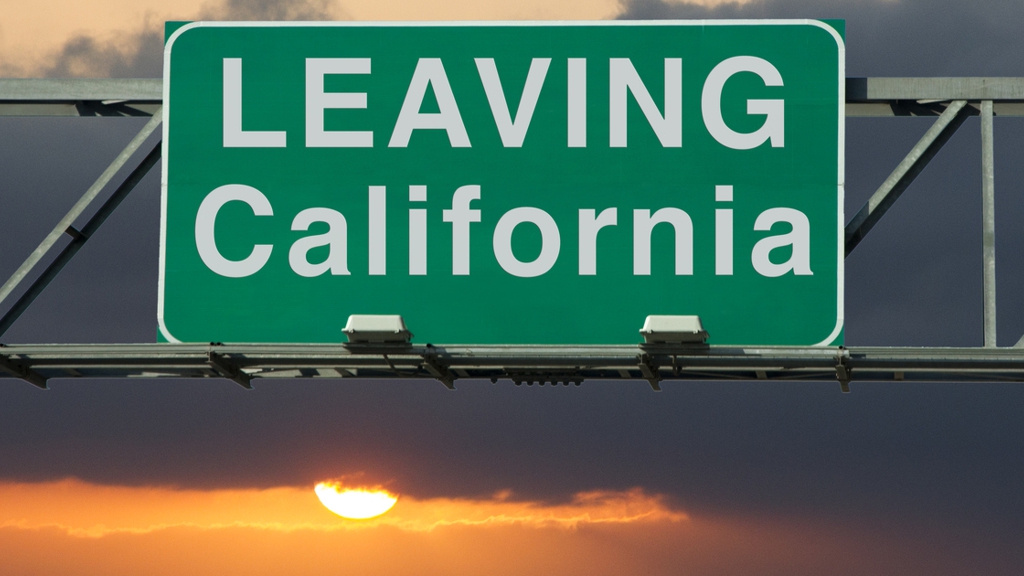California businesses are leaving the state in droves. In just 2018 and 2019—economic boom years—765 commercial facilities left California. This exodus doesn’t count Charles Schwab’s announcement to leave San Francisco next year. Nor does it include the 13,000 estimated businesses to have left between 2009 and 2016.
The reason? Economics, plain and simple. California is too expensive, and its taxes and regulations are too high. The Tax Foundation ranks California 48th in terms of business climate. California is also ranked 48th in terms of regulatory burdens. And California’s cost of living is 50 percent higher than the national average.
These statistics show why California’s business and living climate have become so challenging. But the frustrations that California entrepreneurs face every day present a different way of understanding their relocation decisions.
Erica Douglas, a young tech entrepreneur, moved her company, Whoosh Traffic, from San Diego to Austin, Texas, a few years ago. Here is what she had to say:
“Dear California,
“I’m leaving you. I’ve struggled with a government that is notoriously business-unfriendly—with everything from high taxes on earning to badgering businesses to work more to comply with bureaucracy. I paid enough in California income tax in one year alone to hire another worker for my business. And you charge me $800 annually as a corporation fee, when most states charge just a few dollars.”
Not surprisingly, California businesses tend to relocate from the counties with the highest taxes, highest regulatory burdens, and most expensive real estate, such as San Francisco, and they tend to relocate to states where it is easier to prosper. Texas imposes just a 0.75% franchise tax on business margins, compared to California’s 8.85% corporate tax. As if this large difference weren’t enough of an incentive to leave, the city of San Francisco imposes a 0.38% payroll tax, and a 0.6% gross-receipts tax on financial service companies. Yes, if your business is in San Francisco, not only are your profits taxed by the state, but your payroll and your output are taxed as well. Not to mention that Texas has no individual income tax, compared to California’s current top rate of 13.3%, which may rise to 16.3% soon, and which would apply retroactively.
Speaking of California entrepreneurs leaving the state, there is Paul Petrovich. If you live near Sacramento, chances are your life has been made easier by Paul. He is a major commercial real estate developer whose projects include facilities involving Costco, Target, Walmart, McDonalds, Wells Fargo, and Verizon, among other major firms. But Petrovich has announced he will soon be leaving. For . . . drumroll please . . . Texas.
You see, California is discussing a wealth tax that may hit Petrovich. Known as AB 2088, lawmakers are so proud of this 0.4% tax on wealth that they proudly market it as “establishing a first-in-nation net-worth tax” that “will generate $7.5 billion in revenue.” Complicated as all get-out, it involves not just financial assets but real estate, farmland, offshore holdings, pensions, art, antiques, and other collectibles. Europe tried taxing wealth, and it has failed, leading almost all countries to abandon it. And the idea that it will generate $7.5 billion in revenue is laughable, though it will create additional income for tax attorneys and CPAs. The state also intends to make this law follow you for up to a decade should you leave. Clever politicians? Maybe, but just how will they convince other states to cooperate once you relocate? Not to mention whether this future provision is constitutional.
I am surprised that Petrovich stayed in California so long. As a developer specializing in developing infill projects, meaning developing unutilized or underutilized land, he has been involved in many lawsuits challenging his right to develop.
One has involved a mixed-use development project that includes a Safeway supermarket, senior living, shopping, and a gas station on a site of a former railway station, polluted and abandoned. What is not to like? For the city council, it is the gas station.
Petrovich has been involved in a legal battle over this project since 2003. All over a gas station. Twenty lawsuits and over $2 million in legal fees later, Petrovich appears to be winning, and winning against a city council that broke the law.
A state appeals court recently ruled that the Sacramento City Council denied Petrovich a fair hearing several years ago by acting in a biased manner. Sacramento Superior Court judge Michael Kenny wrote that one councilman demonstrated “an unacceptable probability of actual bias” and failed to have an open mind. The court found that the councilman was trying to round up votes against the gas station before it came before a hearing. Rather than accepting this ruling, the city council will appeal. They appear to be doubling down not only on bad behavior but on wasting resources as well .
Readers often ask me how California politicians have changed over time. An important and often overlooked factor is that politicians now have personal agendas that they aim to impose on other Californians, often without transparency or accountability. This is what is going on now with Petrovich, and is what is going on with AB 5, the new law that prevents many Californians from working as independent contractors that began on January 1. Voters must begin to hold politicians accountable for this if California is ever able to reform.
Mr. Petrovich, if you leave, I will be sorry to see you go. Your developments made life much easier and more prosperous for thousands. Thanks for your service. Your potential departure will be a loss for all of us.
Read Original Article on Hoover.org







